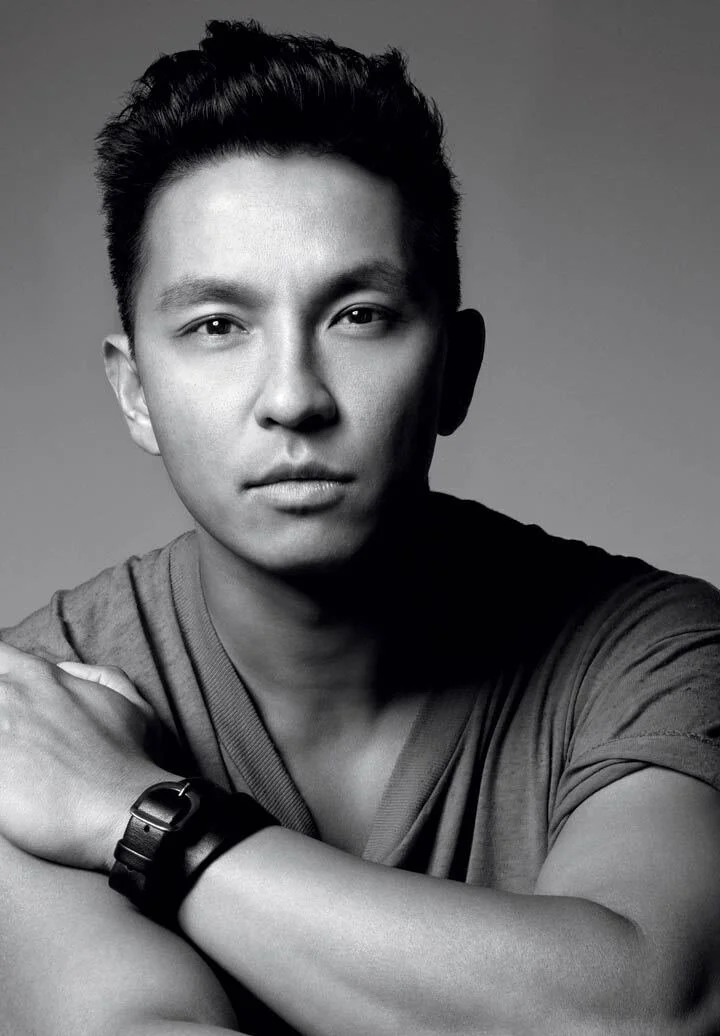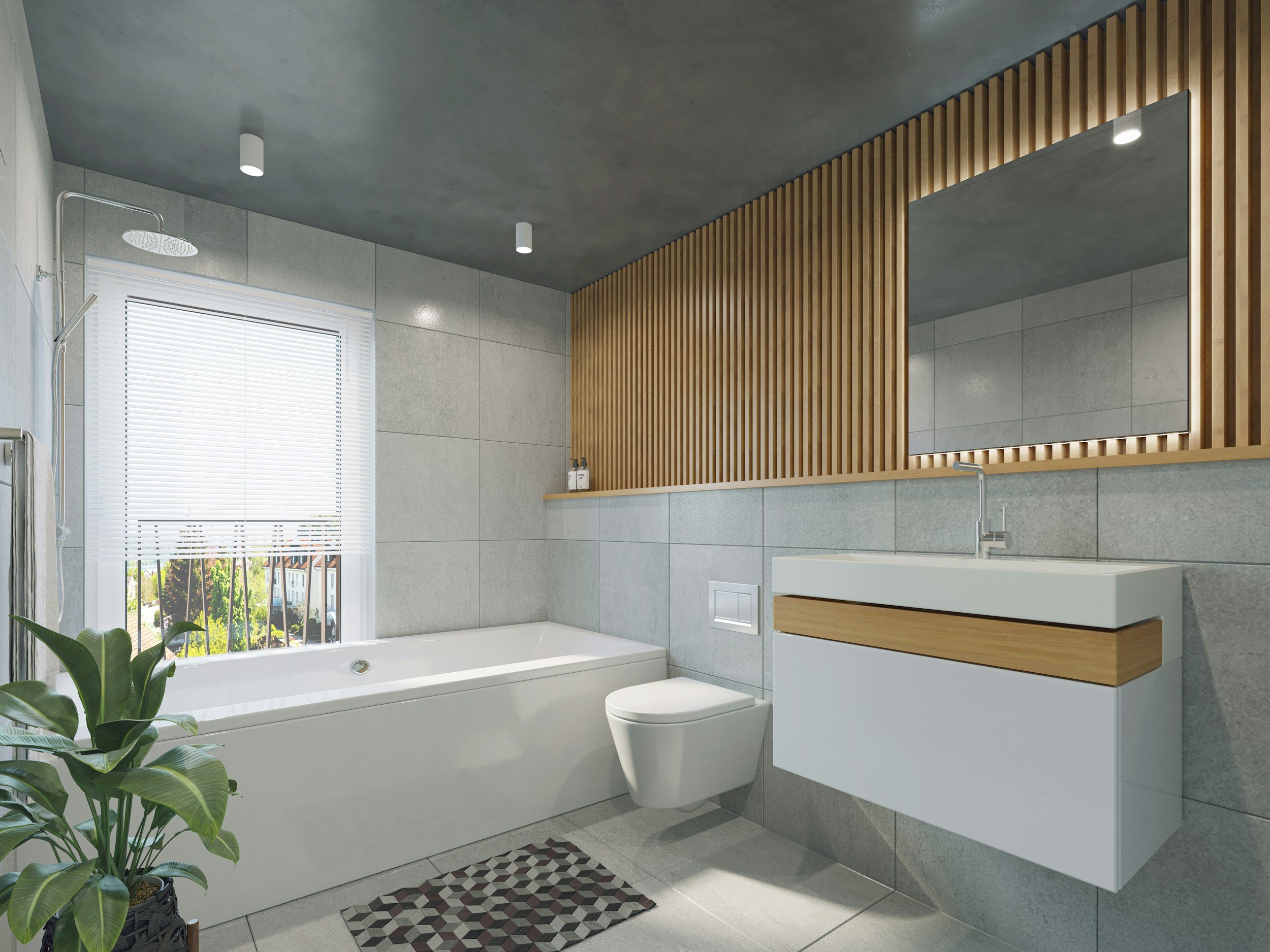Prabal Gurung Donates 2,000 Face Masks And Launches ‘All Americans’ Collection
prabalgurung.com
Written by Tanya Klich. This story was originally published in Forbes.
When COVID-19 began to shut down retailers across the country, Prabal Gurung, like many of his industry peers, was eager to transform his luxury fashion house into a producer of face masks for frontline workers.
So the New York City-based designer hopped on calls with local hospitals, Governor Cuomo’s office and nonprofits hoping to pitch in. But he quickly learned that constructing a single “medical-grade” face mask is more complicated than creating bespoke gowns for the Met Gala.
Prabal Gurung during one of his past presentations for New York Fashion Week.
PETER WHITE/GETTY IMAGES
“What I realized was that making masks is just one small part of the process,”
says Gurung.
“If they were going to be used by hospital workers in the front lines, they had to be FDA- and CDC-approved.” A process that could take months. “Then my sources were telling me that my facilities are not equipped to make medical-grade masks at all.”
From global brands like Louis Vuitton, Christian Siriano and Brandon Maxwell, to small independent designers like Darius Brown and Gregory Apparel, many are pivoting their businesses or using their sewing chops to address the national shortage of masks. But most of these designers’ disclaimers are fashionably loud and clear: These are not medical-grade masks.
Gurung's special delivery for frontline workers at Elmhurst Hospital in Queens, New York.
PRABALGURUNG.COM
For instance, designer Michael Costello, who is selling masks for $15 to $20 each, immediately notes in his product descriptions that the items are “nonmedical grade.” And for each mask sold he is donating two to a medical worker that “must be worn over their N95 mask,” according to the New York Post.
Meanwhile, the New York Times reports that designers like Christian Siriano and bikini maker Karla Colette are working with authorities on acquiring proper materials in hopes of meeting safety standards.
“We are working hard on this and more to come soon,” Siriano wrote in an Instagram post. “We want to be safe and make sure all the legal requirements are met.”
Designing Mask
Gurung toyed with the idea of inventing his own safety mask but saw there was an immediate need and absolute shortage, as N95 and KN95 masks remain unavailable or on back order at major online retailers. So he instead teamed up with The COVID Foundation to donate and deliver 2,000 N95 respirator masks to New York hospitals and frontline medical workers.
Donated masks delivered to Elmhurst Hospital in Queens, New York.
PRABAL GURUNG
The COVID Foundation were experts at procuring the masks from 3M and ensuring all PPE complied with the National Institute for Occupational Safety and Health (NIOSH). Equally important to Gurung, the organization focuses on protecting underserved communities amid the pandemic. The masks were delivered to Elmhurst Hospital in Queens, Metropolitan Hospital Center in East Harlem and Brooklyn Hospital.
“I chose them because these are hospitals in marginalized communities where access to great healthcare is limited,”
says Gurung.
“Oftentimes, it is these communities who are neglected and affected.”
Gurung says the 2,000 masks is just the start of his fashion house’s relief efforts.
On Going ‘All American’ During Pandemic
Prabal Gurung launched his eponymous line in 2009 and has since dressed celebrated women like Oprah, Demi Moore and former First Lady Michelle Obama, as well as rising stars like Logan Browning and Tiffany Young.
The Singapore-born designer was raised in Kathmandu, Nepal, before coming to the U.S. at the age of 20. As the global pandemic worsened, the celebrity designer felt compelled to contribute his designs to All Americans, a newly launched cross-cultural collective of businesses, nonprofits and community leaders aiming to support underserved communities affected by the pandemic. Politician Andrew Yang, comedian Dave Chappelle, soccer star Megan Rapinoe, rapper Fat Joe and actress Olivia Munn are among supporters of the campaign.
Fashion designer Prabal Gurung teams up with All Americans.
PRABAL GURUNG
According to the organization, African American and Latinx communities have higher COVID-19-induced fatalities than any other group.
The group points to stats:
Chicago, where African Americans represent 72% of COVID-19 deaths, reports NPR. Additionally,
Latinx Americans represent 34% of COVID-19 deaths in New York City.
Brick-and-mortar businesses–particularly those owned by Asians–have also seen drops in business of 40% to 80%.
Combating racism and xenophobia is also part of All Americans mission.
“From attacks on the Asian American community to how black communities in Asia were being mistreated, it seemed like things were going out of whack on a global scale. So how do we make this message that we are all in this together?”
He hopes to shine a light on how Asian Americans have played a huge part of the economic and cultural growth of the country.
But the designer also hopes the Asian community finds its voice amid this crisis.
“We as an Asian community don't speak out enough,”
he says.
“We have a platform that our ancestors and forefathers who first immigrated to this country did not have, so it’s up to us as the second and third generation to speak up for ourselves, and, more important, speak up for other groups, be they black, Latinx, LGBTQ and so on. No one will speak up for us if we don’t speak up for others.”
Gurung, Philip Lim and Monse founders Laura Kim and Fernando Garcia have also contributed exclusive clothing designs to All Americans. Net proceeds from the merchandise will go toward relief efforts in affected communities, from providing medical supplies to economic stimulus for local small businesses. The collection logo features an upward-facing arrow sitting atop an equal sign. Together, these two are meant to symbolize bold action and inclusivity.
“This is important for COVID-19 relief efforts because we live in a visual world with Instagram and TikTok,”
explains Gurung,
“so this is a way for the world to understand that if one community suffers during this outbreak, so does everyone else.”
Prabal Gurung's street-wear design for AllAmericans.Us.
ALL AMERICANS
On The Future Of Retail Post-COVID-19
Gurung also believes this is a time for the entire fashion retail industry to innovate, as well as reflect.
“We should reflect on what is not working and reinvent ourselves financially, environmentally and culturally. As an ethical manufacturer and an independent, self-financed brand, we have to always review our best practices.”
As a brand that produces over 90% of collections locally in New York, Gurung is currently in talks with manufacturers, suppliers and an array of emerging and legendary designers to preserve jobs as well as the rich history of the New York City fashion industry.
COMMENT OR TAKE OUR PAGE READER SURVEY
Featured














KANE Footwear expands its sustainable recovery portfolio with the Revive OB, an open-backed performance shoe engineered from Brazilian sugarcane-based foam to deliver hands-free convenience, biomechanical support and lower-impact manufacturing.